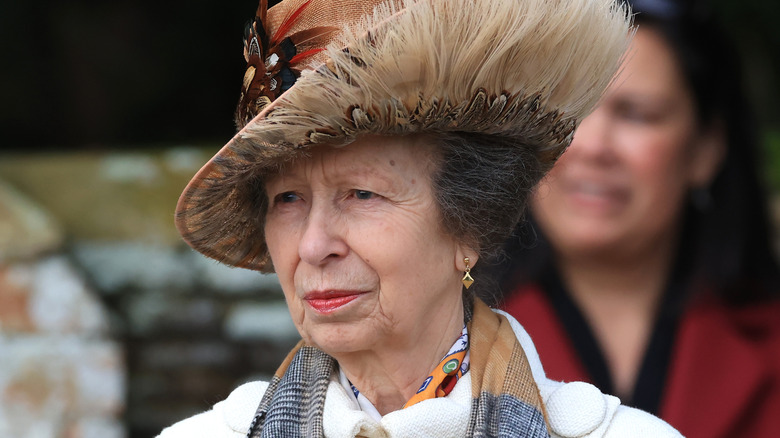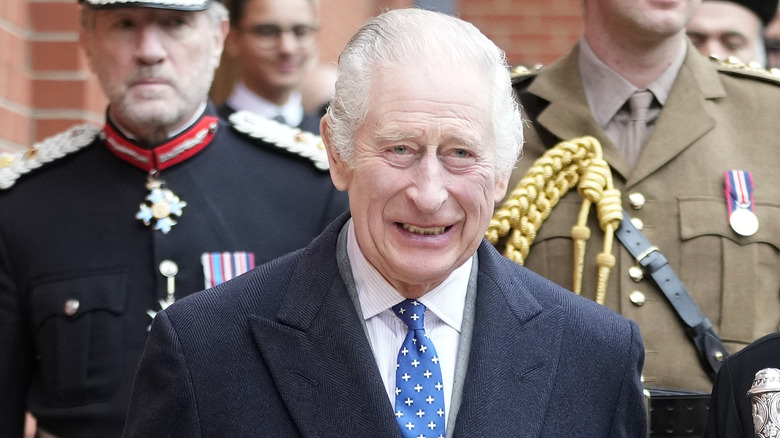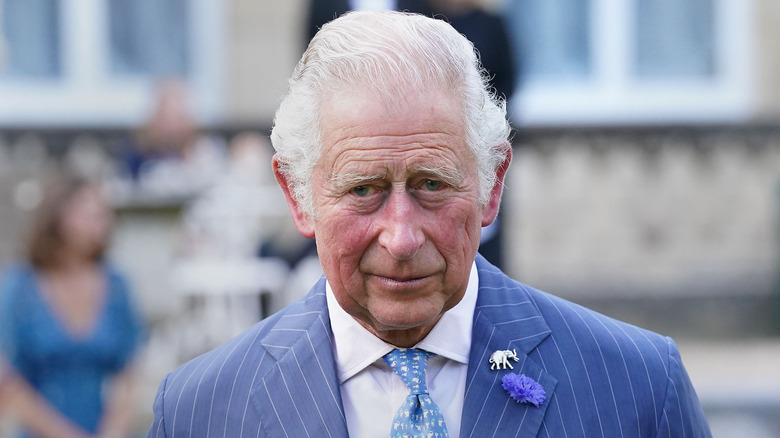Why Princess Anne Thinks King Charles Taking The Throne Later In Life Is A Good Thing
King Charles III set a record when he ascended to the throne after the death of his mother, Queen Elizabeth II. At 73 years old, he had the distinction of being the oldest person to serve as a new British monarch; back in 2008, Charles set the record for the longest-waiting heir to the British throne in history. Of course, during his lengthy tenure as Prince of Wales, Charles remained busy with royal duties. Between 1976 and 1986, he established three charitable organizations to support young people, promote education, and encourage environmentally sustainable communities.
Over the years, Charles has been perceived as eager to take on the role he was preparing for his entire life. In 2012, while speaking about restoration work at Dumfries House for a video posted on the royal family's YouTube channel, Charles said: "Impatient? Me? ... yes, of course, I am. I'll run out of time soon."
While some individuals have observed that Charles was well into traditional retirement age before he became king, Charles' sister, Anne, Princess Royal, sees the positive side to his long wait. "When you start much later in your life, inevitably you've got more experience to fall back on and you will have more opinions," Anne states in Robert Hardman's "The Making of a King" (via the Daily Mail). In addition, as the hardest-working royal of 2023 (with 457 engagements), the Princess Royal continues to demonstrate that senior royals have an important role to play in supporting the monarchy.
Charles brings decades of global experience and environmental expertise to his reign
Princess Anne has long been respected for her straightforward, practical approach to royal duty, and royal experts agree with her that King Charles III's reign will benefit from his long stint as heir to the throne. While he was Prince of Wales, Charles made over 100 trips to countries all around the globe. According to Paddy Harverson, Charles's former communications secretary, these excursions were integral to preparing Charles for his role as monarch. "He has built up a huge amount of knowledge, experience, wisdom and connections, and he will bring all of that to the job," Harverson explained to People.
In addition, royal historian Tracy Borman has noted that during the last few years of Queen Elizabeth's reign, Charles picked up some of his mother's royal duties, helping him slowly segue into his eventual job as king. For instance, in May 2022, just a year before his coronation, Charles made a speech to open Parliament when Elizabeth was unable to attend.
Charles' accession is also a case of serendipitous timing. The king has long been a proponent of environmental stewardship. "He was ahead of his time in supporting a whole range of causes from sustainable fisheries to organic farming which are increasingly seen as vitally important in saving the planet," author Ian Lloyd informed Newsweek. Now that climate change is a worldwide concern and topic of discussion, Charles "has credibility as an influential figure," Lloyd added.
Charles has been working hard for decades in preparation for becoming king
Like his sister, Princess Anne, King Charles has been diligent about his royal workload for decades, and he's too busy to break for lunch. In addition, the king has also been known to work long hours. "He works all day long, has a quick supper and then disappears until about 4 a.m. to write letters," Sophie Winkleman, wife of Lord Frederick Windsor, informed People. Prince Harry, Duke of Sussex, has also attested to his father's nighttime correspondence and noted that Charles has occasionally slept on top of his papers.
While Anne has frequently held the title of hardest-working royal for a given year, when measured over a decade, Charles actually edged out his diligent sibling. Between 2013-2022, Charles completed 4,854 royal engagements — 161 more than Anne.
As Queen Elizabeth II began experiencing more health problems, royal staffers began contingency planning for a regency in case Charles would need to rule in his mother's stead, either short-term or long-term. Despite his long wait to become king, Charles had no desire to get involved with these plans. "I think he felt that if you reach out for something, you are tempting fate," a palace aide theorized in Robert Hardman's "The Making of a King" (via the Daily Mail). While Charles accepted the necessity of succession preparations, he also acknowledged that it required a delicate balancing act, since it was inextricably bound up in the sad fact of his mother's death.


